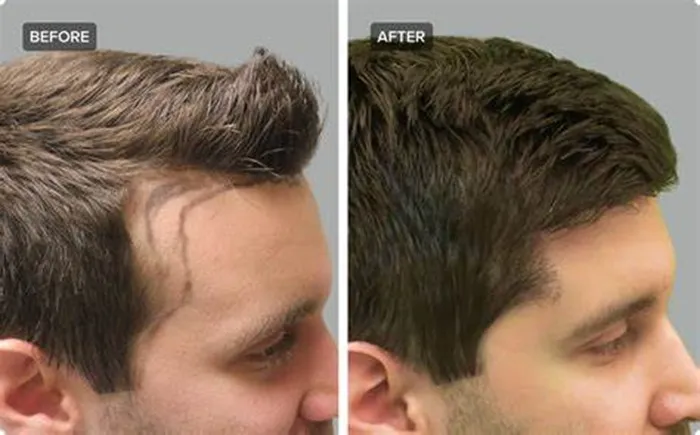Hair transplant surgery is a highly effective solution for addressing hair loss, but many patients wonder if they can undergo the procedure more than once. This article will provide a detailed exploration of the factors involved in having a second hair transplant, including the reasons for considering it, the ideal timing, and the potential limitation.
Understanding Hair Transplant Surgery
Hair transplant surgery involves relocating hair follicles from a donor area (usually the back or sides of the scalp) to the recipient area where hair loss has occurred. The two primary techniques are Follicular Unit Extraction (FUE) and Follicular Unit Transplantation (FUT). Both methods aim to restore hair growth in balding or thinning areas.
Reasons for Considering a Second Hair Transplant
Unsatisfactory Results from the First Procedure: Sometimes, the results of the first hair transplant may not meet the patient’s expectations. This could be due to poor surgical technique, inadequate aftercare, or other factors.
Progressive Hair Loss: Hair loss can continue even after a successful hair transplant. In such cases, a second transplant may be necessary to address new areas of thinning.
Scarring or Accidents: Scars from accidents or burns can prevent hair from growing in certain areas. A second hair transplant can help conceal these scars.
Lifestyle Factors: Poor lifestyle choices, such as smoking and excessive alcohol consumption, can affect the health of transplanted hair. If these habits persist, a second transplant may be needed。
Factors Influencing the Decision for a Second Hair Transplant
Donor Area Limitations
The success of a hair transplant relies heavily on the quality and quantity of donor hair. The donor area is the region from which hair follicles are harvested, typically the back or sides of the scalp. The number of available follicles in this area is finite, and repeated procedures can deplete this supply. Before considering a second procedure, it’s essential to assess the donor area’s remaining hair density and health。
Scalp Health and Skin Elasticity
The health of the scalp is crucial for the success of a second hair transplant. If the scalp was previously subjected to a lot of stress during the first surgery, or if there are scarring or tightness in the skin, the second transplant may face challenges. It’s important to discuss your scalp condition with your surgeon.
Hair Loss Progression
Hair loss is often progressive, especially with conditions like androgenetic alopecia. Before committing to a second surgery, it’s important to consider how much further hair loss is likely to occur. A thorough consultation with a trichologist will help you understand whether your hair loss is likely to stabilise or progress.
Timing and Preparation for a Second Hair Transplant
Minimum Time Between Procedures
A minimum of 12 months is recommended between two transplants. This time is necessary to allow complete healing and accurate evaluation of the results of the first operation。
Stabilization of Hair Loss
Proceeding with a new transplant while baldness is actively progressing can compromise long-term results. It’s important to wait until the hair loss has stabilised。
Techniques Suitable for a Second Graft
Modern techniques such as FUE Sapphire and DHI (Direct Hair Implantation) are particularly suitable for second transplants. These methods allow maximum use of the remaining grafts and offer great precision in the placement of the new follicles。
Realistic Expectations and Results
It’s important to have realistic expectations about the results of a second hair transplant. Results can vary considerably depending on the quality of the remaining donor area and the extent of hair loss.
The Importance of Choosing the Right Surgeon
The choice of an experienced surgeon plays a key role in the success of a second hair transplant. It is advisable to look for a surgeon with specific experience in secondary transplants, mastering advanced techniques and able to show concrete results from cases similar to yours.
Conclusion
A second hair transplant can be an excellent option for individuals who want to enhance the density of their hair or address new areas of thinning. However, it’s essential to consider factors such as donor area limitations, scalp health, and the potential risks involved. By consulting with a skilled and experienced hair transplant surgeon, setting realistic expectations, and following proper post-operative care, patients can achieve outstanding results.
Related topics:
- Can Hair Transplant be Done Twice?
- Second FUE Hair Transplant: A Complete Guide
- How Many Times Can You Get a Hair Transplant?


